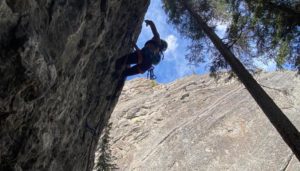2019 Canadian Climbing Medicine Symposium: A Huge Success
The conference that’s paving the way for the field in North America
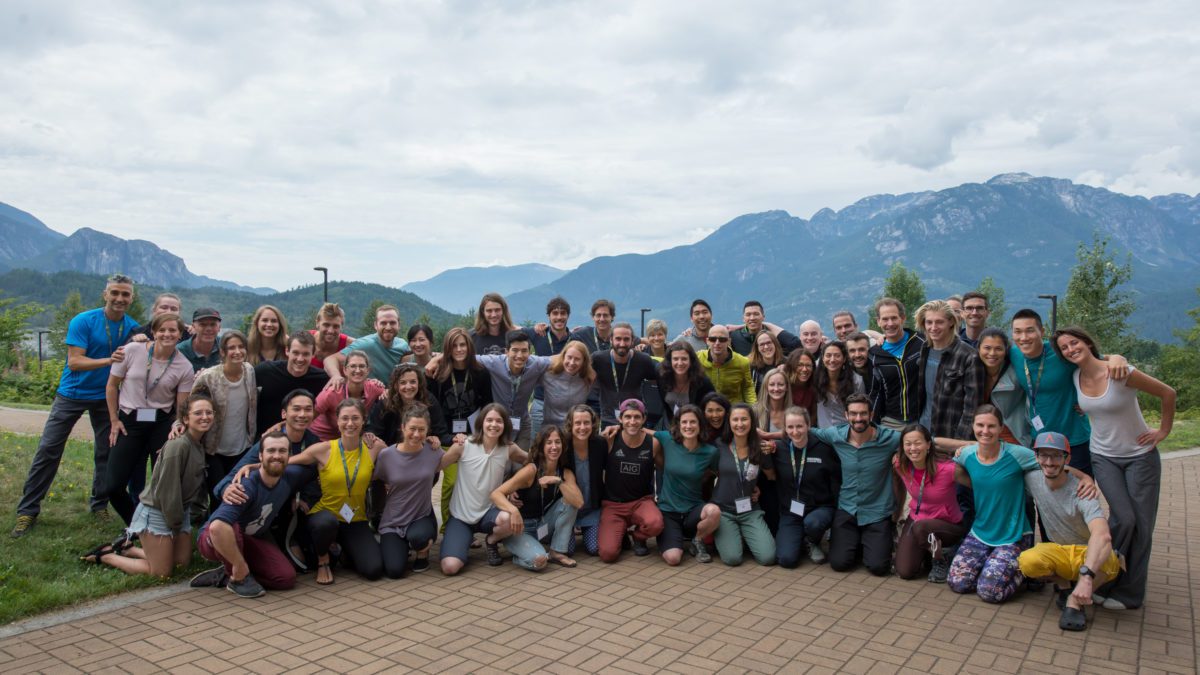
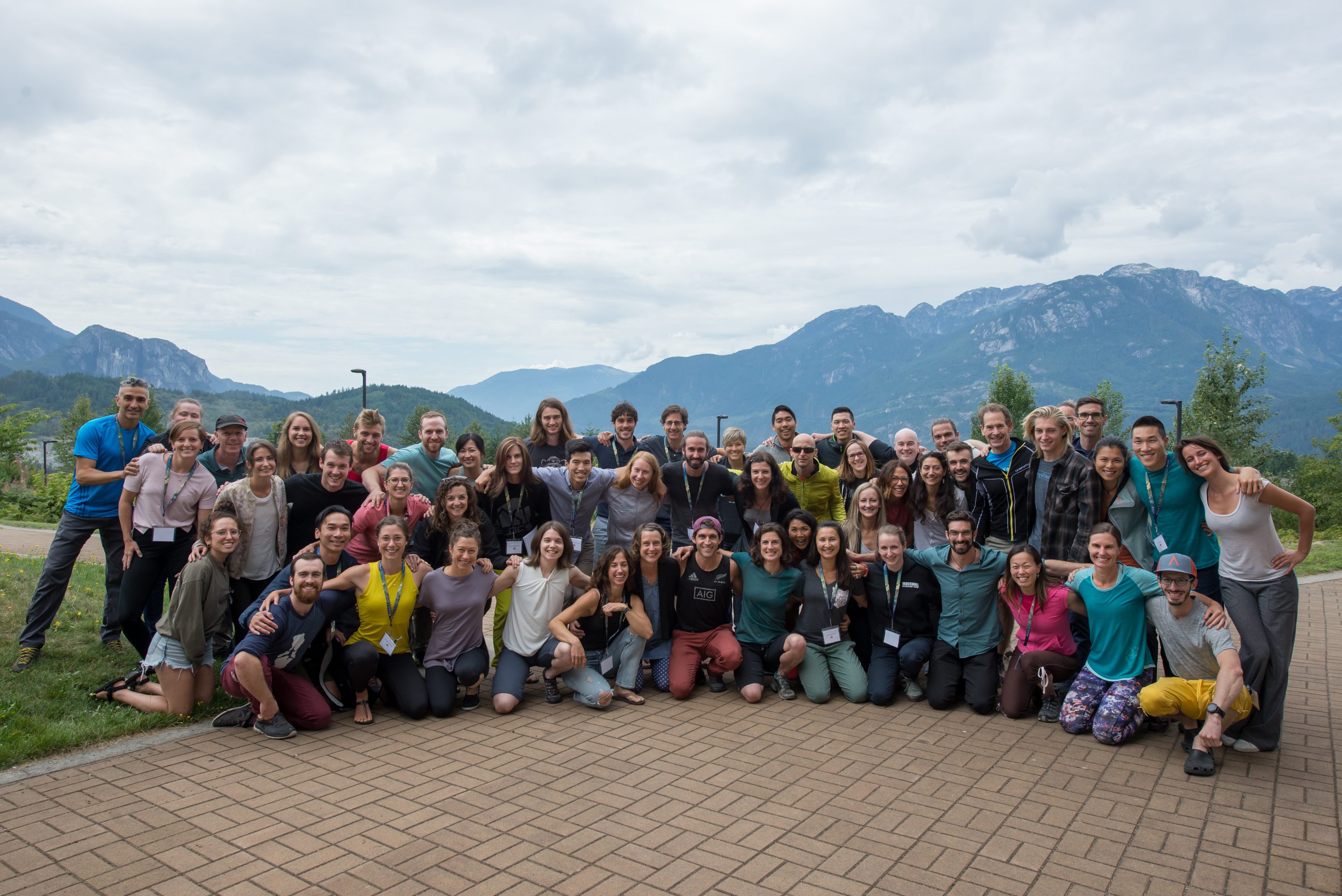
“I have to say that this was, all around, one of the best conferences I have been to in a while, in terms of location, content, quality of speakers, pacing and so on,” said Dr. Connie Lebrun about the 2019 Canadian Climbing Medicine Symposium (CCMS).
The 2nd biennial conference took place August 12-14, in Squamish, BC, and received widespread positive feedback. This is one of the few if not the only conference of its kind in North America and it was an impressive event. Eighteen different speakers gave a total of 25 presentations to the roughly 70 people in attendance, which is a near doubling in size from the inaugural event in Toronto, in 2017.
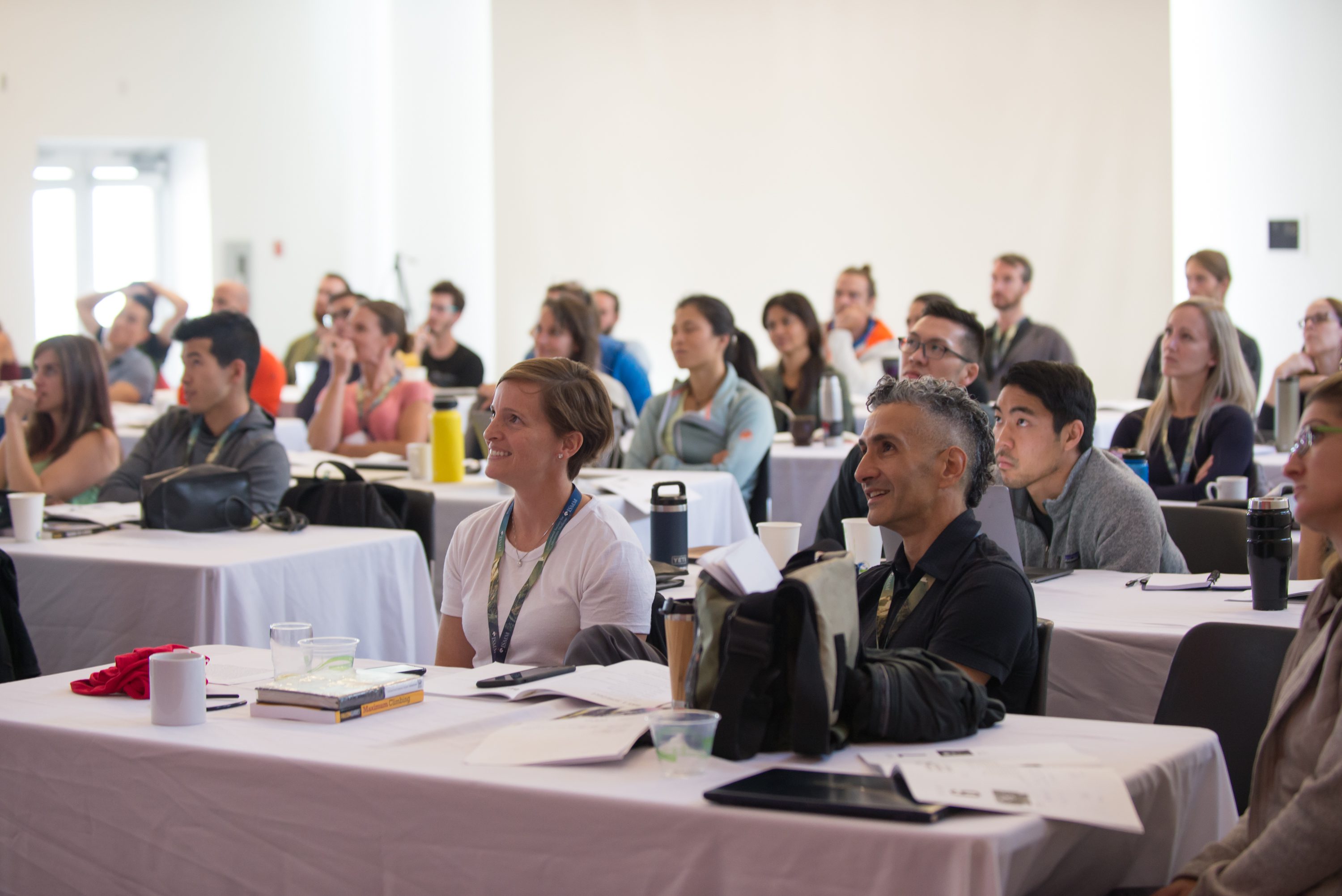
Many factors contributed to the success of the symposium including the calibre of the speakers, the diversity of the topics, the organization and location of the event. But perhaps the most significant reason is the increasing relevance of and interest in the field of climbing medicine.
The Importance of Climbing Medicine
The exponential growth in popularity of rock climbing, amplified by its inclusion in the 2020 Olympics, has brought with it a host of new questions and concerns around training and health.
How can coaches help prevent young athletes from getting injured? What kind of nutritional and training regimes can produce climbing gains while minimizing chance of injury? How is the injury landscape changing and how can health practitioners adapt their assessments and treatments in lieu of these changes? How can we train differently to accommodate trends in climbing movement? What are some of the psychological factors that affect climbing performance?
These are the kinds of forward-thinking questions addressed at the Canadian Climbing Medicine Symposium.
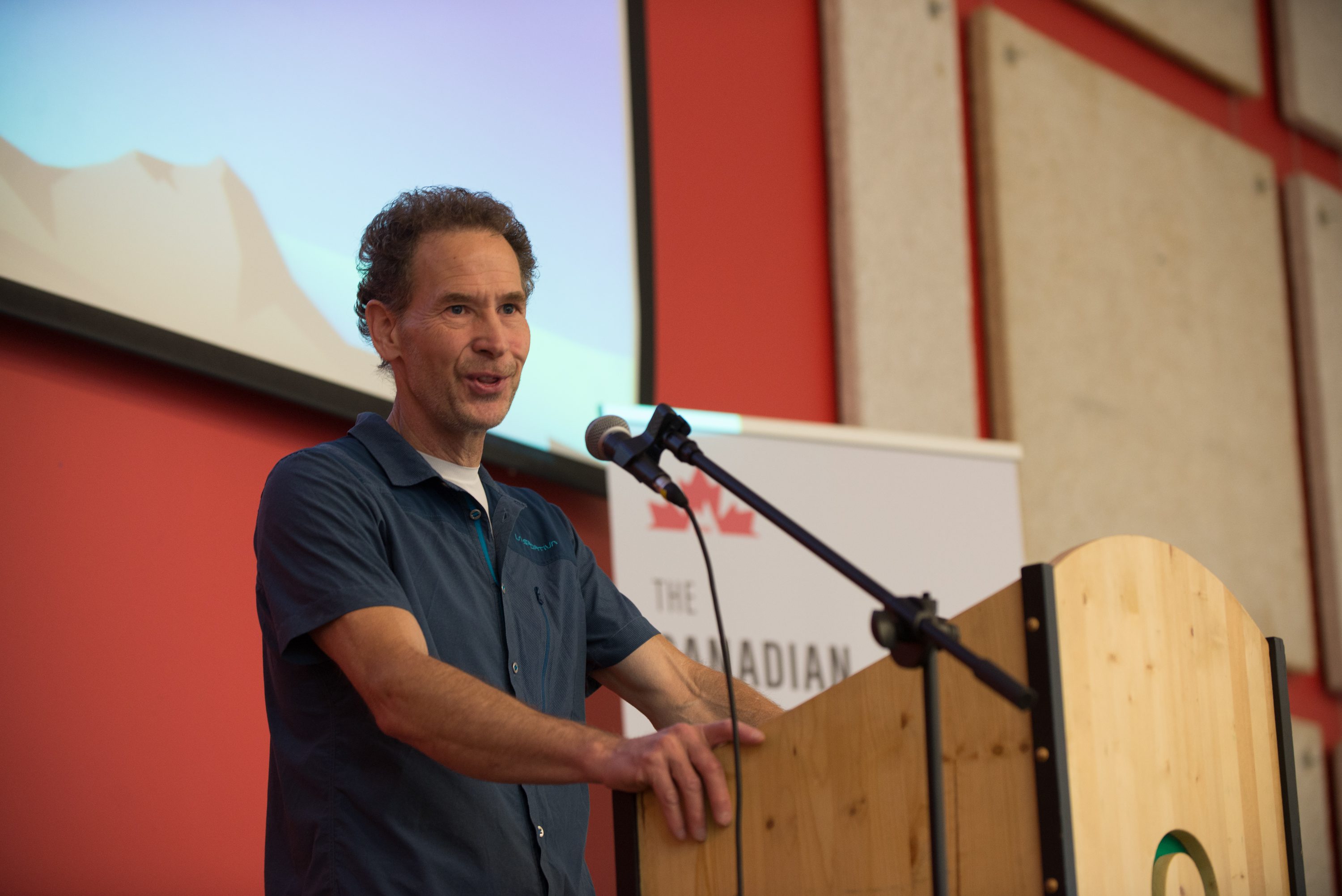
Eric Hörst, of Training for Climbing fame, boils the ongoing importance of this conference down to this: “Climbing injuries are increasing at an alarming rate, so we need to get this information to medical professionals, coaches, and climbers.”
Grade A Presentations
In the words of Lebrun, “the presentations were riveting.” And she was not alone in her opinion. The conference “was excellent,” said Hörst, “so much great content and inspirational speakers.”
This is not surprising given the star-studded cast, if you will, of the event. The CCMS faculty are all well-established experts in their fields: Dr. Yasser El-Sheikh, Eric J. Hörst, Dr. Isabelle Schöffl, Dr. Volker Schöffl and Dr. Herb Von Schroeder. And there was no shortage of talent in the list of invited speakers either, including The Climbing Doctor Jared Vagy, Dr. Tyler Nelson from Camp4 Performance, and many more.
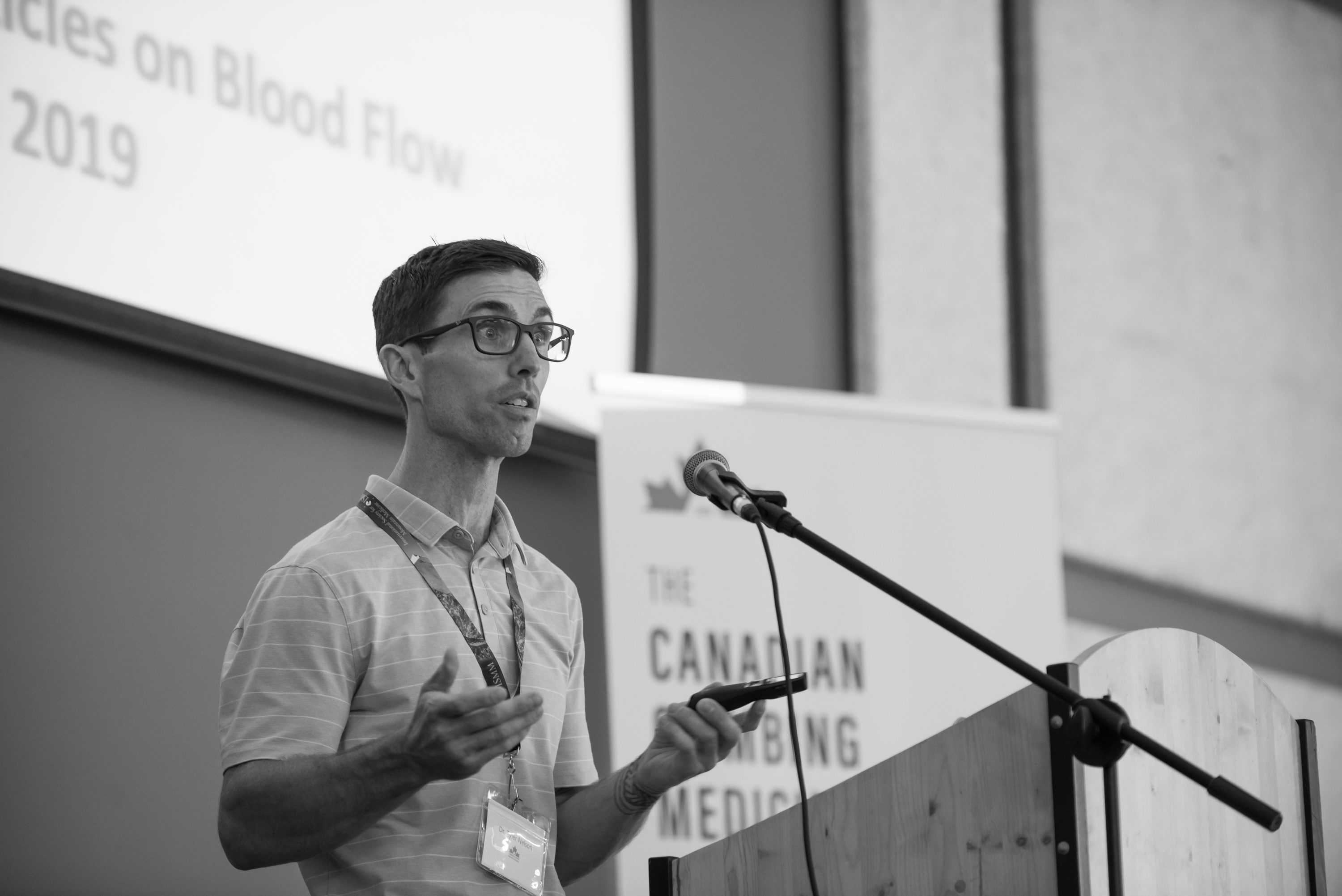
The program was divided into three broad themes: Sports Medicine, Social Science and Training/Performance/Kinesiology.
Under these headings, a wide range of material was covered from how to stretch, warm-up and train for climbing, to prevention, assessment, classification and treatment of injuries. There were also talks on sport psychology and topics specific to competition climbing.
The diversity of the presentations meant that there was something of particular interest for everyone, and everyone had the opportunity to learn something beyond their respective fields. It takes talented speakers to bring specialized and sometimes complex information to a more generalized audience.

Interdisciplinary Collaboration
There was a wide range of specialties represented at the symposium: RMTs, physiotherapists, chiropractors, surgeons, sports medicine doctors, coaches and athletes. A major benefit of the symposium was the opportunity to meet, mingle and collaborate with the other attendees.
In the words of Dr. Vagy: “A big highlight of the event was having the opportunity to form connections with medical professionals from around the world, who share the same passion for treating rock climbers. I have never been surrounded by so many people that share the same passion.”
“I have never been surrounded by so many people that share the same passion.”
He goes on to explain, “As medical practitioners that specialize in treating climbers, we often work in silos, geographically separated from each other, each developing our own unique approaches to managing climbing injuries. Conferences like the Climbing Medicine Symposium bring us all together so that we can formulate new ideas and collaborate with our peers.”
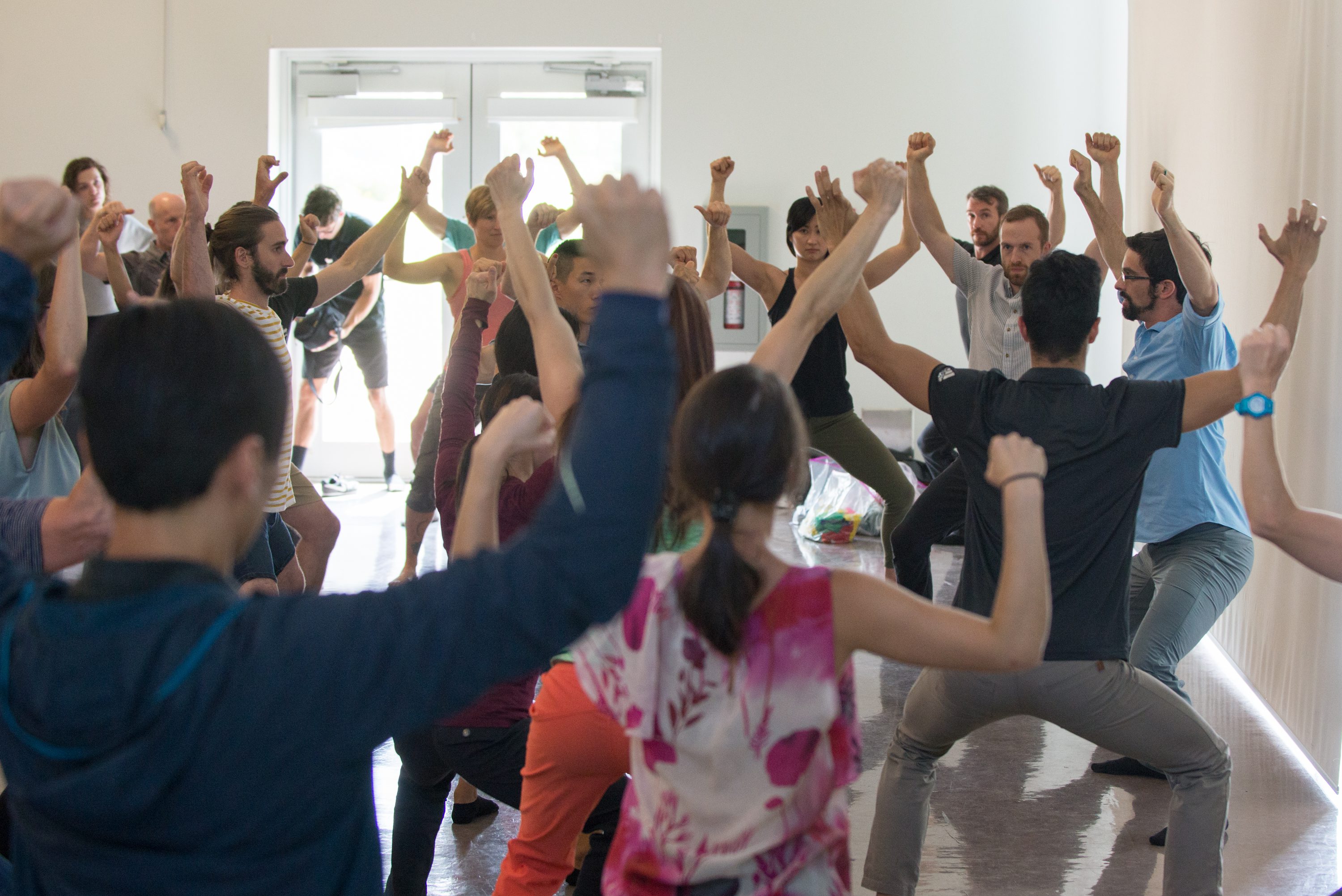
Professional Development
The symposium is about advancing and developing the field of climbing medicine, broadly speaking. At the same time, it is an opportunity for individual professional development.
Ilana Horowitz, for one, was very happy to have made the trip west for the event. A relatively new RMT from Toronto, Horowitz explained how the symposium was useful in her career: “Through the speakers, I learned more about climbing injuries, rehab approaches, and climbing-specific training and therapeutic exercise. I met a wide range of international medical professionals and learned so much from them in casual conversations between sessions.
“I have also treated two new patients that were referred to me by a physiotherapist I got to know at the symposium. And I have an article coming out in the Sutherland-Chan School of Massage Therapy alumni newsletter about climbing and the symposium was an excellent resource for this.”

Access to Premier Climbing and the Outdoors
Known as the outdoor recreation capital of Canada, Squamish was an ideal location for the symposium. The sessions took place at Quest University, which sits at the top of a hill, girt by mountains. Participants were able to enjoy breakfast, lunch and coffee breaks surrounded by the breathtaking views of the Garibaldi Highlands.
“The location of Squamish was of course perfect,” said Horowitz, “to be able to fit in climbing or hiking at the end of the day was amazing.”
Indeed, most participants were able to fit in quite a few outdoor activities, whether it was a run on the trails, a vista-soaked hike or climbing on the world-famous granite. Given the demographic of the attendees, most everyone took full advantage of the scheduled outdoor time on Tuesday afternoon, as well as after conference hours or by extending their stays by a few days.
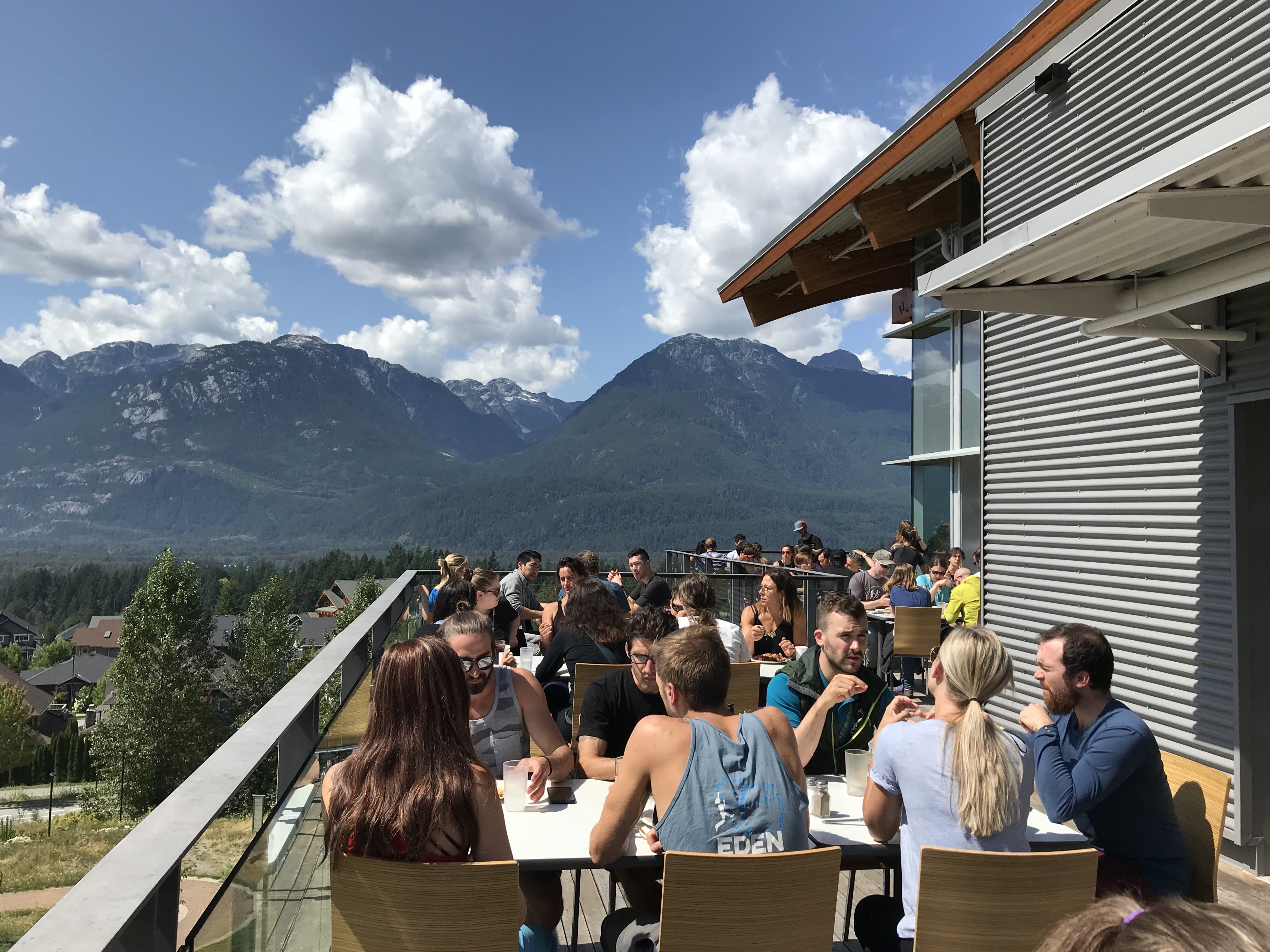
Cementing Its Reputation
In our April 2019 interview, Dr. Yasser El-Sheikh explained why he founded Climbing Medicine Canada in the first place: “There is a growing need for education in the fields of climbing performance and health, both for lay climbers and climbing health professionals.” Thankfully the growing need for education is matched by the growing interest in being educated, which was shown by the turnout and enthusiasm of the 2019 Symposium.
El-Sheikh told us he was more than pleased with how the symposium went. But was also quick to mention how much work went on behind the scenes to make it the success that it was: “I really want to thank the organizing committee (Kacy Wilson, Nina Tappin, Will Bateman and Aida Fahoum) for all their hard work, and our sponsors for their support (Gripped, Working Model, The Hive, Ground Up Climbing Centre, and MEC).” Indeed, from the programs to the name tags to the closing catered dinner (with special diet options) at an open-air restaurant, it’s easy to take the flow and details of an event for granted when everything runs as smoothly as it did.
The first event in Toronto was a success in its own right, but the second iteration really solidified the Canadian Climbing Medicine symposium as a premier, not-to-be-missed event for anyone involved in this important and growing field.
The CCMS is scheduled to return to Squamish in 2021. Stay tuned for information from Climbing Medicine Canada on the website, Facebook page and Instagram
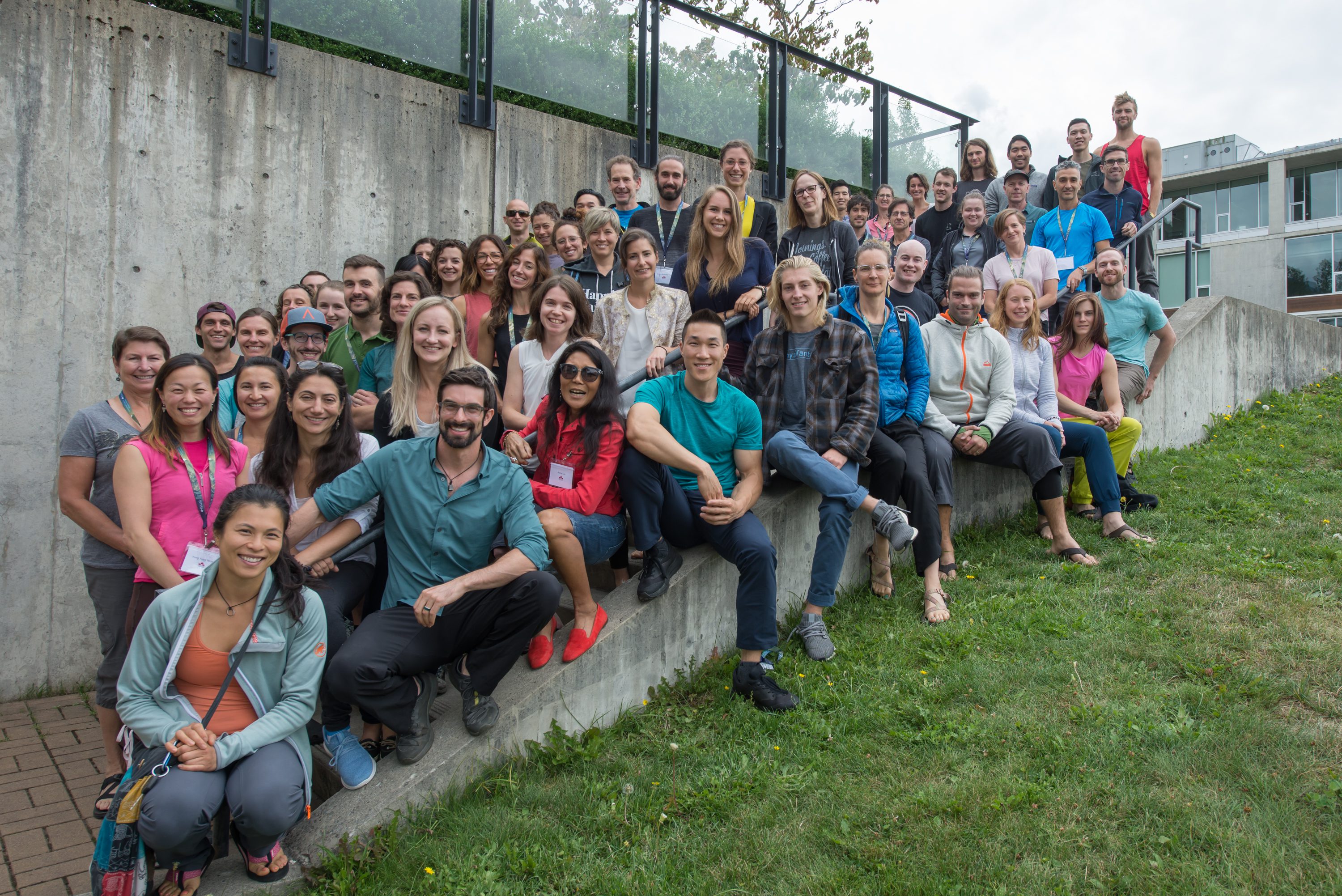
CCMS Faculty
Dr. Yasser El-Sheikh, Eric J. Hörst, Dr. Isabelle Schöffl, Dr. Volker Schöffl, Dr. Herb Von Schroeder
CCMS 2019 Speakers
William Bateman, Dr. Craig Berman, Marieta Buse, Dr. Carrie Cooper, Julien Descheneaux, Evelyne Lajoie, Mélanie Lavigne, Anna Lee, Andrei Mandzuk, Dr. Tyler Nelson, Dr. Iain Stewart-Patterson, Nina Tappin, and Dr. Jared Vagy.

